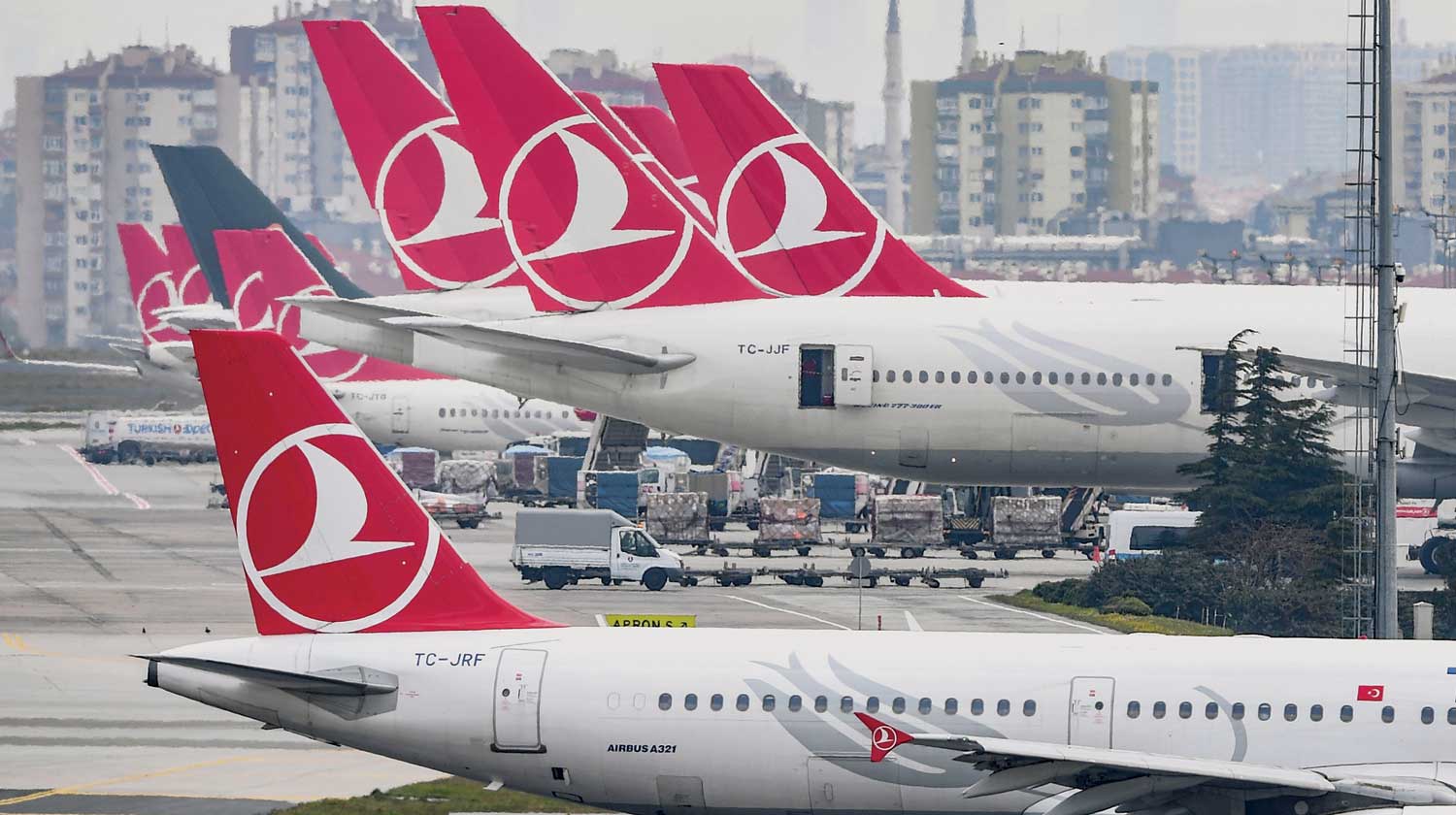

After three false starts and a labour protest over harsh working conditions, Turkey will fully open a new airport in Istanbul this week that will give its fast-growing flagship airline a platform to challenge Gulf rivals for regional dominance. Authorities plan to shift flights from the city’s Ataturk Airport, on the edge of the Sea of Marmara, to the new airport 30 km north on the Black Sea shores, in a mammoth 45-hour transfer operation started on last Friday.
The $8 billion airport is one of several infrastructure mega-projects championed by President Tayyip Erdogan and will initially be able to handle 90 million passengers a year, a number which Turkey hopes to more than double by 2027.
That would make it the biggest in the world, measured against current airport operations globally.
“Istanbul Airport will rise to second place in terms of passenger numbers it serves in around five years,” Transport Minister Cahit Turhan told reporters in the gleaming departure hall. “When all phases are complete, Istanbul Airport will sit in the leader’s chair.”
The move should support Turkey’s ambition to make Istanbul a global aviation hub and will offer Turkish Airlines a chance to grow beyond the restrictions of Ataturk airport’s limited size.
After 15 years of rapid growth, the airline flies to more countries than any competitor, helped by its Istanbul base which is close to European, African and Middle Eastern destinations.
That location means many cities are within a 4-5 hour flight radius which can be flown by fuel-efficient, narrow-bodied planes. The relatively low costs helped deliver profit last year of $716 million.
With more slots available, the airline plans to increase its total fleet from 338 aircraft to 476 over the next four years, and analysts say it will challenge the three big regional competitors: Emirates, Qatar Airways and Etihad.
“It puts them on a level playing field with the Gulf carriers,” aviation expert John Strickland said.
However there are potential risks ahead. The airport is opening just as years of strong economic growth are grinding to a halt in Turkey, and any weakness in the domestic market could prove a drag on Turkish Airlines’ business.
Istanbul’s opening comes a decade ahead of the expansion of Dubai’s Al Maktoum International Airport to handle 130 million passengers a year, which has been pushed back to 2030.
Dubai-based Emirates will one day shift to the airport, which ultimately aims to be able to handle 260 million passengers a year. For now, Dubai plans to focus on Emirates’ current hub Dubai International, which handled nearly 90 million passengers in 2018.
The Gulf airlines already face testing times. Qatar Airways said last month it would report a second consecutive annual loss this year.
Emirates warned in November of tough times after first-half profit fell to its lowest in a decade, and Abu Dhabi has abandoned its goal of becoming a major air travel hub akin to Dubai.
Turkey’s aviation sector has become a “huge threat” to Gulf airlines, a senior executive at one Middle Eastern airport said, and also to rivals in Asia and Europe.
That includes Frankfurt Airport, one analyst said. It is the hub of Lufthansa, one of Europe’s largest airlines, and handled 69.5 million passengers last year. It is a roughly three-hour flight from Istanbul, slightly closer than the Gulf.
Turkish Airlines is not the only emerging rival.
Ethiopia overtook Dubai last year as a conduit for long-haul passengers to Africa, highlighting the success of the state airline’s drive to win back market share on routes to and from Africa which had been dominated by Turkish Airlines and Emirates.
Turkish Airlines has targeted fast-growing Asian economies, signing a code share agreement with India’s largest domestic carrier Indigo on December, and setting up a joint venture with China’s ZTO to extend its cargo operations.
“The upside of the new airport ... is its potential to tap Chinese, Indian and other emerging Asian markets,” said Erdem Kayli, senior analyst at TEB Investment/BNP Paribas. — Reuters
Ceyda Caglayan & Dominic Evans
Oman Observer is now on the WhatsApp channel. Click here



